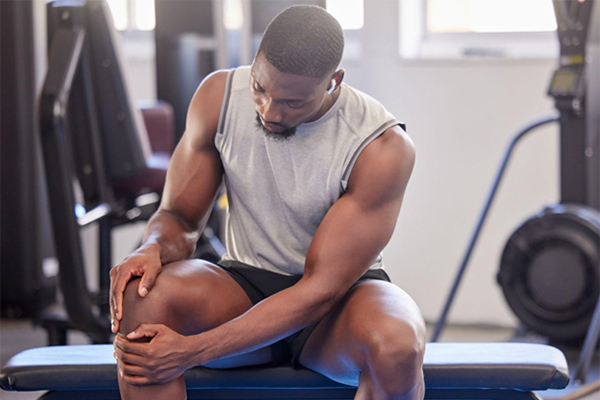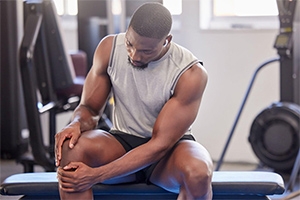
Arthritis isn't just an "older adult" issue—it often starts earlier than most people expect. In fact, among adults under 45, men are more likely than women to develop osteoarthritis.1 Yet many men overlook the early warning signs, waiting until the pain or stiffness becomes harder to ignore. This is the time to take charge of your joint health—starting with recognizing the early signs of arthritis that men are more likely to overlook. Prioritizing these warning signs is especially important during Men’s Health Month, when awareness around preventive care and long-term mobility takes center stage.
Persistent Joint Pain—Not Just Post-Workout Soreness
It’s easy to blame aching joints on a tough workout or a long day on your feet. But if joint pain—especially in the hips or knees—lasts for more than a few days, or worsens with activity, it could be an early sign of arthritis. Unlike temporary soreness, arthritis pain doesn’t just go away with rest.
Stiffness That Lingers, Especially in the Morning
If your joints feel tight or stiff in the morning and it takes more than 30 minutes to loosen up, it could be a red flag. Morning stiffness is a common symptom of inflammatory arthritis and shouldn’t be ignored, especially if it's affecting your quality of life or daily activities.
Decreased Range of Motion in the Hips or Knees
Are your hips or knees not moving the way they used to? Difficulty bending, squatting, or climbing stairs may be a sign that arthritis is progressing. Men often compensate by limiting movement, which can worsen stiffness and reduce joint health over time.
Swelling or Warmth Around the Joints
Noticeable swelling or warmth in a joint, particularly the knee, can signal inflammation, a key symptom of arthritis. Even if the swelling is minor or comes and goes, it’s worth getting evaluated by a specialist.
Fatigue and General Discomfort
Chronic joint pain can take a toll on your energy and overall well-being. If you’re feeling worn down more than usual or experiencing fatigue alongside joint discomfort, don’t write it off.
Early Arthritis Treatment Options
When caught early, arthritis of the hip and knee may be managed with a combination of lifestyle changes, physical therapy, and targeted treatments. Low-impact exercises, such as swimming or cycling, can help maintain joint mobility and reduce stiffness. Anti-inflammatory medications or joint injections may provide relief from pain and swelling. Consulting a specialist early opens the door to personalized treatments that can slow progression and improve long-term outcomes.
Don’t Wait for the Pain to Get Worse
If you’re noticing any of these symptoms mentioned above, schedule a consultation with Dr. Noble. With the right care, you can stay active, reduce discomfort, and continue doing the things you enjoy.
AUTHOR: Andrew R. Noble MD is a board-certified orthopedic surgeon specializing in hip and knee replacement at Palm Beach Orthopedic Institute. Fellowship-trained at Harvard Medical School's Brigham and Women’s Hospital, Dr. Noble is recognized as a top doctor in his field. He is a member of the American Academy of Orthopaedic Surgeons (AAOS) and the American Association of Hip and Knee Surgeons (AAHKS), having published in The Journal of Bone and Joint Surgery and presented at prestigious national conferences.
Reference:
1. https://oaaction.unc.edu/oa-module/oa-prevalence-and-burden/




